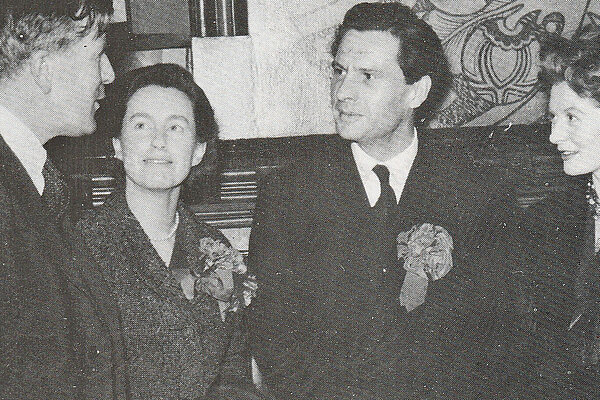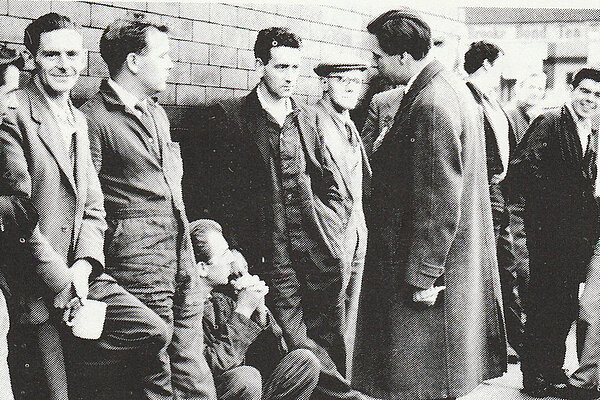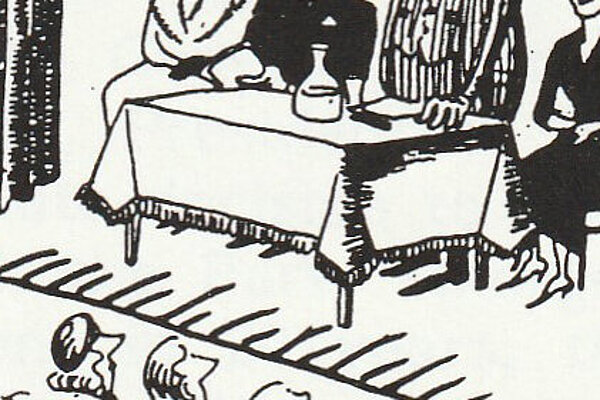Rochdale is no stranger to by-elections, having had one in 1958 and 1972.
The 1958 by-election is notable for many reasons. Nationally it was the first election to be covered by television. The decision by Granada to follow the by-election generated tremendous national interest. It had all the ingredients necessary for a good drama. The Liberals had selected Ludovic Kennedy, a television interviewer and author, who was married to Moira Shearer, the ballerina and film star. Labour had, as an established candidate, 'Jolly' Jack McCann, while the Conservatives, defending the seat, chose Mr. N. Parkinson, an estate agent from Burnley.
For the Liberal Party it marked a revival of their fortunes that led to a string of good by-election results leading to the capture of Tor rington in 1959 and Orpington in 1962. • For local Liberals it marked a return, after a string of disappointing results, to the limelight. The by-election 'fervor' that characterised later Liberal by-elections was developed here. The national leaders were quick to realize the potential of Rochdale. Ludovic Kennedy was nominated by the Party leader, Jo Grimond, and the central organisation drafted in a string of professional workers under the direction of Edward Wheeler, later Director General of Liberal Party Organisation.
Granada broadcast two programmes prior to polling day, one the week before, covering the election and election issues, including local interviews and another, 'a live broadcast', the day before polling day. The financial implications of these broadcasts under Electoral law was still unresolved, and much advice was sought, both in Rochdale and London, which eventually paved the way for our present television coverage of elections.

Despite the television cameras, it was still very much an old-style campaign with its concentration on large meetings attended by national personalities: Lord Byers, Jeremy Thorpe, John Arlott and Charles Harvey were amongst those speaking in support of Kennedy. The star attraction, however, was Moira Shearer who accompanied her husband everywhere. Though she insisted on calling herself Mrs. Kennedy, there is no doubt that she drew the crowds. Local Liberal misgivings about choosing a political newcomer were soon dispelled. As one member recalled, canvassing "was like shelling peas". Kennedy proved an able exponent of Liberalism declaring himself as fighting for: "Freedom from the cost of living and freedom from the fear of dying." The campaign slogan was in three parts, in the first week 'Time to Change', the second week was 'Change for the better' and the last week 'Better vote Kennedy'.
Help from other areas flooded in, the Young Liberals being particularly enthusiastic. The interest generated by the Press and Television is reflected in the turnout which was 89% on a register which would have only been in force for another day. At Liberal Headquarters, all helpers were taken upstairs to be formally thanked by Alderman Bryning, the President of the Association. Some were taken aback by this, but the old-world courtesies were still carefully observed in Rochdale.
Despite all this effort, however, and the national publicity, the Liberals failed to win the seat. Why? Edward Wheeler recounted a story which provides some indication.
On the final Saturday, the Liberals were organising an old-style meeting on the Town Hall square. It was a huge success, and Edward Wheeler, the Labour agent walked towards the Post Office where he was standing watching the meeting. "Well " he said "We've got several hundred Liberal workers and voters on the square today. "Eh" said the Labour agent, "but I've got several hundred workers out canvassing· on the streets!". Perhaps there's a lesson there for anyone organising an election!

The following year Kennedy again fought Rochdale pushing the Labour Party harder and getting within 3000 votes. Because of business pressure, he was forced in 1960 to resign as Parliamentary candidate. The 1964 General Election was fought by Dr. Thomas Hobday. The tide was by now moving towards Labour. This was shown in the local elections the previous year when Labour obtained an overall majority on the Council for the first time. At the General Election, Hobday retained second place, though with a decreased vote. This can partly be explained by the intervention of Tom Normanton, a local man, as Conservative Candidate.

